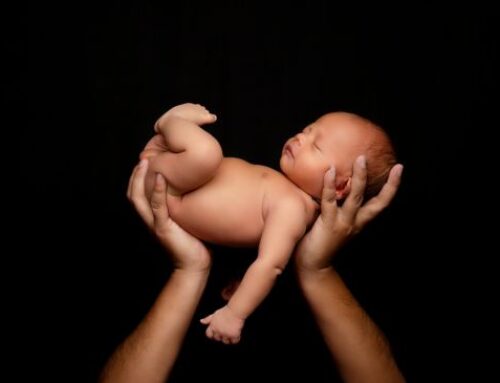 There are no accidents in popular culture. Trends and fads might crest with seeming randomness, but do not be fooled – every hit movie, TV show or book and the copycats in its wake are meant to scratch some cultural itch. The motivations might be obscure at the time, but hindsight reveals all, so I cannot help but anticipate just what led to the recent ubiquity of the zombie.
There are no accidents in popular culture. Trends and fads might crest with seeming randomness, but do not be fooled – every hit movie, TV show or book and the copycats in its wake are meant to scratch some cultural itch. The motivations might be obscure at the time, but hindsight reveals all, so I cannot help but anticipate just what led to the recent ubiquity of the zombie.
A quick scan down a helpful Wikipedia list of zombie films reveals a startling number made in the last decade, from cheapo nasties with titles like Boy Eats Girl, Dead Snow and Hood of the Living Dead to star vehicles like Zombieland, major franchises like the Resident Evil series to remakes and revivals of George Romero’s genre-defining series, which began in 1968 with Night Of The Living Dead.
This would all be of limited interest to anyone outside of horror’s avid fan base until the recent debut of The Walking Dead. The show takes Romero’s shuffling ghouls into the realm of miniseries drama, as it airs on AMC, the quality cable channel that brought us critical monoliths Mad Men and Breaking Bad, and hit the air with 5.3 million viewers, a record for the channel.
The Walking Dead stars British actor Andrew Lincoln as Rick Grimes, a southern county sheriff who gets shot at a roadblock, and wakes up from his coma to find the hospital empty, and the world outside mostly deserted except for the usual stumbling, malodorous army of cannibalistic zombies. He heads out to search for his wife and child among the survivors, in a deserted, moribund landscape reminiscent of the Life After People “post-apocalyptic nature” shows – with zombies, of course.
While it is intriguing to expand the standard zombie story from a 90-minute feature plotline to the technically endless dramatic possibilities of a TV series, The Walking Dead was already looking creaky after just three episodes. (Though that did not dissuade AMC from renewing it for a second season after airing just two.) The shock of the zombie hordes certainly wears off after a couple of hours; by the third episode, the blue-fleshed, sunken-eyed extras evoked what they really were – enthusiastic participants in a high end “zombie walk,” one of those currently popular public gatherings where horror fans and fad-crazed youth dress up as brain-hungry wandering corpses, in what looks like an attempt to reclaim Halloween for irony-drenched adults.
With all this furious cultural activity around the zombie phenomenon, it is no surprise that academia is getting in on the action, and this fall the University of Baltimore offered a semester-long course in Zombie Studies. “The zombie functions as an allegory for all sorts of things that play out in our country,” instructor Arnold Blumberg explained, “whether it’s the threat of communism during the Cold War or our fears about bioterrorism in 2010.” You do not have to be pro-life to ponder what a popular fascination with homicidal dead people might mean beyond the tidy assumptions of academics, but it helps.
The Walking Dead glistens with gore, which you would have to expect from drama where most of the players are decaying. Zombie films shoulder a great deal of the burden of gleefully coarsening entertainment, since the zombie canon prescribes a shot to the head as the only way to stop the ravening hordes. The result is a matter-of-fact use of rifles, pistols, axes, crossbows, stout poles and baseball bats, employed remorselessly since, after all, you cannot really kill something that’s already dead.
More profoundly, zombie films speak to a simmering paranoia about hostility lingering beneath the placid surface of society, which might have become exaggerated lately with the so-called “culture wars” and our increasingly bipolar politics. Professor Blumberg name-checks the Cold War and the “Red Scare” which was presumed to have found its cultural shadow in films like 1956’s Invasion Of The Body Snatchers.
In this light, there is a lot of resonance in a story about waking up discover that your neighbours, friends and family can be infected and turn on you, with the intent on transforming you into one of them – a creature with “no will of his own… walking around blindly with dead eyes, following orders, not knowing what they do, not caring.” This description of zombies comes from Ghostbreakers, a 1948 comedy starring Bob Hope. The gag is Hope’s deadpan response: “You mean, like Democrats?”
In Toronto recently, a populist, “conservative” candidate from the suburbs won a mayoral race against a gay former cabinet minister from the provincial Liberal government, an outcome that was apparently shocking to downtown voters, even more so when poll breakdowns revealed considerable support for the winner even in downtown wards. There was a great outpouring of dismay, as liberal voters realized that their neighbours, parents of their childrens’ schoolmates, perhaps even co-workers and friends, voted for a candidate they regarded as ridiculous, even dangerous. The zombies, it seemed, were among them.
More than the casual gore, this aspect of the zombie craze is even more dangerous, since the crude metaphor helps dehumanize your political opponents – hardly a healthy outcome. It is unlikely to abate as long as politics-as-usual prevents us from ever seriously debating divisive issues like the size of government, the function of the state, or abortion. And you probably will not get any more solace from the news that the trailers for next year’s movie releases are top heavy with – no shock – films about alien invasions. Watch the skies.




